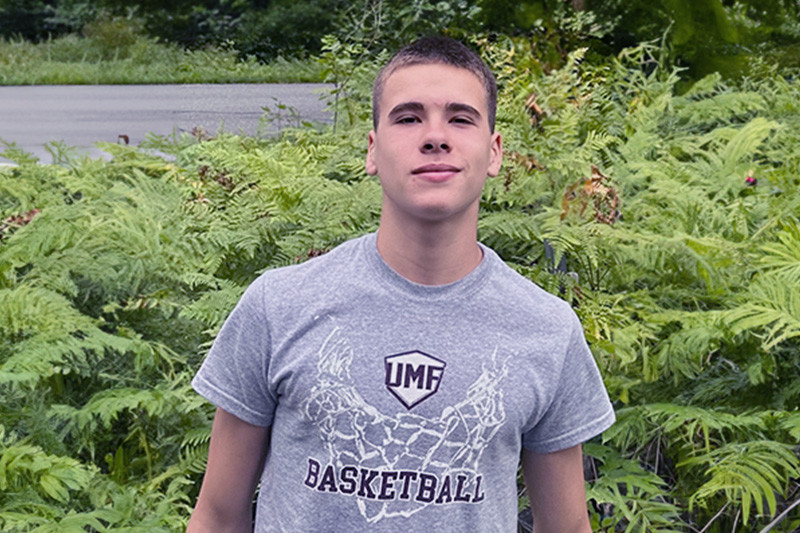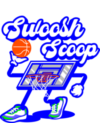Sports
My story of bouncing back from osteochondritis dissecans – Boston Children's Answers – Boston Children's Discoveries

Injuries suck — no better way of putting it. The physical pain is terrible on its own, but emotionally they can hurt even more. The frustration that comes with something that is out of your control is like nothing else. It makes you realize how much you take your health for granted until you lose something you love. That was my experience with basketball.
Growing up, basketball was my life. Throughout my childhood, I played for hours a day. I was always shooting and dribbling and perfecting my skills. Even as a small kid, I was successful in the sport and had no problems with injury, always getting knocked down and springing right back up like nothing. That was until I started having elbow soreness.
I always assumed the soreness in my right elbow was a growing pain. I was just a young kid, and with all the basketball I did, a little soreness was expected. However, as I got older, my elbow just never seemed to get better. In 2018, my parents took me to an orthopedic facility in Maine. After a series of tests, the doctor there advised me to do physical therapy (PT) and take six weeks off from sports.
But the pain continued. In early 2021, after dealing with ongoing elbow pain, I was diagnosed with osteochondritis dissecans (OCD) of the elbow — a small piece of bone in my elbow was cracked and unstable. (Fortunately, it hadn’t detached from the rest of the bone.) My parents brought me to Boston Children’s Hospital for a second opinion.
Osteochondritis dissecans (OCD) is a joint disorder in which a segment of bone and cartilage starts to separate from the rest of the bone after repeat stress or trauma. Most often, OCD develops in the knee, though it can occur in the elbow and other joints as well.
The day after my 16th birthday, Dr. Donald Bae, an upper extremity specialist, confirmed the diagnosis and recommended surgery. I was devastated, to say the least, that my first year of high school basketball would be taken away just like that.
After surgery, I worked hard to get my elbow strong again. I went to PT multiple times a week, didn’t lift anything heavier than a laptop with my right arm for six months, and worked on basketball skills that didn’t use my right arm.
Then, in June, I described pain I was having in both knees to an acupuncturist I was seeing for my elbow. He recommended that I see someone to rule out OCD. That’s when we returned to Boston Children’s.
I didn’t think I had much to worry about, but then I got news that I never could’ve expected. The X-rays showed OCD in both knees!
After more tests, Dr. Mininder Kocher, the chief of Sports Medicine who specializes in knee injuries, suggested surgery on both knees. The operations would be done separately, eight weeks apart, and then I’d face another long recovery. I was heartbroken. After all the time I’d put into getting healthy again, I was going to miss yet another season of basketball.
Thankfully I got support from another athlete who also had OCD in his knee. He helped me understand what to expect and gave me advice on how to recover as effectively as possible. About four months after my final surgery and a whole lot of PT (60 appointments in 2022), I was able to get back to training in basketball.
Although it took months of work to get back to health, the time honestly went by quicker than I thought it would. Here’s what I learned about recovery:
Re-injury prevention: Before he returned to basketball, Jace’s team in the Sports Medicine Division conducted several tests of his bone density, genetics, and running gait — all to make sure he could play with a low risk of injury.
It’s been a journey to get my body and skills back to where they were, but now my knees and elbow feel the best they ever have.
The biggest thing I took away from my surgeries is how they changed my appreciation for the things I love. I fell back in love with the game of basketball and gained mental toughness that I didn’t have before. Despite the setback injury causes, it can also set you forward and empower you with mental fortitude that will help you in many ways.
Learn more about the Hand and Orthopedic Upper Extremity Program and Sports Medicine Division.
Hockey is a fast and physical sport. Players need to think and act quickly as their team members, opponents, and …
When Ryker Casey takes the field, everything comes down to the strength of his legs and precision of his kick. …
The memory remains vivid in Sophia’s mind. Racing down a slalom course at top speed, she hit a patch …
“No guts, no glory.” “No pain, no gain.” “Rub some dirt in it.” Sports clichés like these encourage young …
Sign up for our weekly email newsletter for the latest parenting tips, patient stories, and news for your family from Boston Children's
Ranked among the best in the nation by U. S. News & World Report
300 Longwood Avenue, Boston, MA 02115
617-355-6000 800-355-7944









